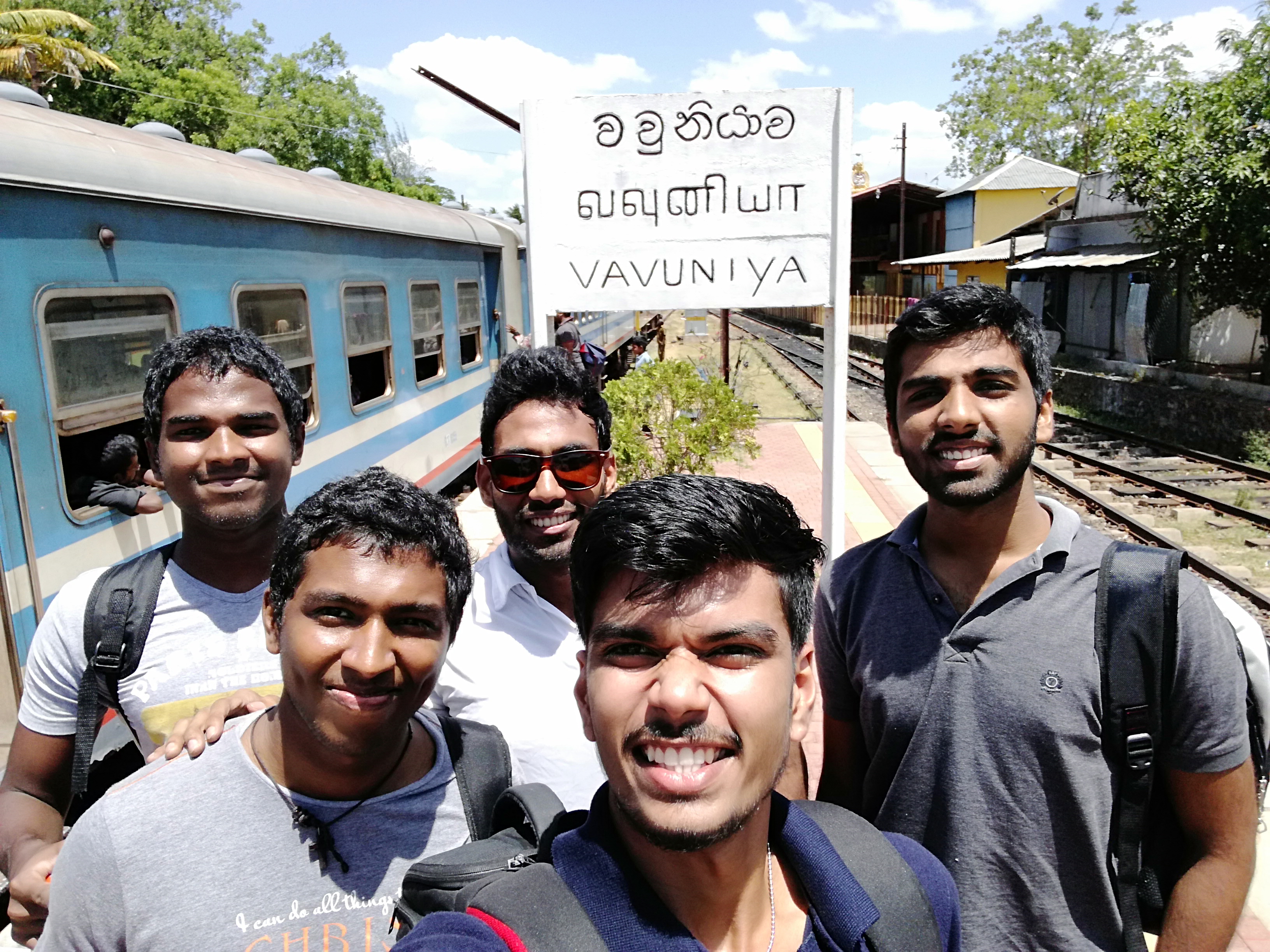The suburbs of Colombo were whizzing past my window as Shalutha briefed us on what we needed to do when we got to our final destination: Kebethigollawa. It had been little less than an hour since we departed from Fort, and what was left of the morning darkness was slowly creeping away as we struggled to keep in sync with the train’s almost rhythmic jerks and quivers. Besides Shalu there were four other people in the group: Anushan, Naweed, Mindula and myself.
Each of us had a vague idea of what we needed to do and why we were being sent on this seemingly exciting trip. Project Life is one of the main Community Service projects of Rotaract Achievers, and one that we greatly pride ourselves in. It aims to provide rainwater harvesting systems to areas affected by chronic kidney diseases in Kabiththigollewa. We were being sent to collect the requisite data that would help in determining the homes that needed the rainwater harvesting systems the most.
As the hours passed, the green outside our windows turned to a greyish dusty brown. The temperature within became ever harsher as the train traveled further north. After several hands of cards had been dealt we finally arrived at Vavuniya. Our two guides from the Agriculture Department were waiting for us at the station exit. They lead us to a bus that took us from Vavuniya to Kebethigollawa. The bus trip turned out to be a far less delightful experience due to the scorching sun and the dry warm wind that kept buffeting on our faces. A small sheltered truck was waiting for us at Kebethigollawa to take us to the zone.
It didn’t take us long to realize that we had reached the most difficult part of our journey. The roads were little more than narrow dusty pathways littered with potholes, upon which the truck lumbered along with little subtlety. Within the truck, the five of us struggled to hold on to something so as to not be thrown off. Clouds of dust kept flooding in as the truck moved ever into the dry locality.
Almost an hour later, we arrived at the house of our first candidate. At first glance, it was not unlike any other normal house I’ve seen. Faded walls, brown rooftiles, a polished floor and a familiar feel of homely mundanity veiled the struggle the inhabitants of this household were going through in acquiring clean water. Over a delicious lunch prepared for us by the middle-aged couple living there, we came to learn that the husband was suffering from a kidney disease. According to them, they had to walk kilometers everyday to collect water from the nearest lake and get it cleaned from the public filter system installed in the area. It was startling that they had to follow such a routine to simply get the drinking water they required, whereas we constantly take our privileges for granted.
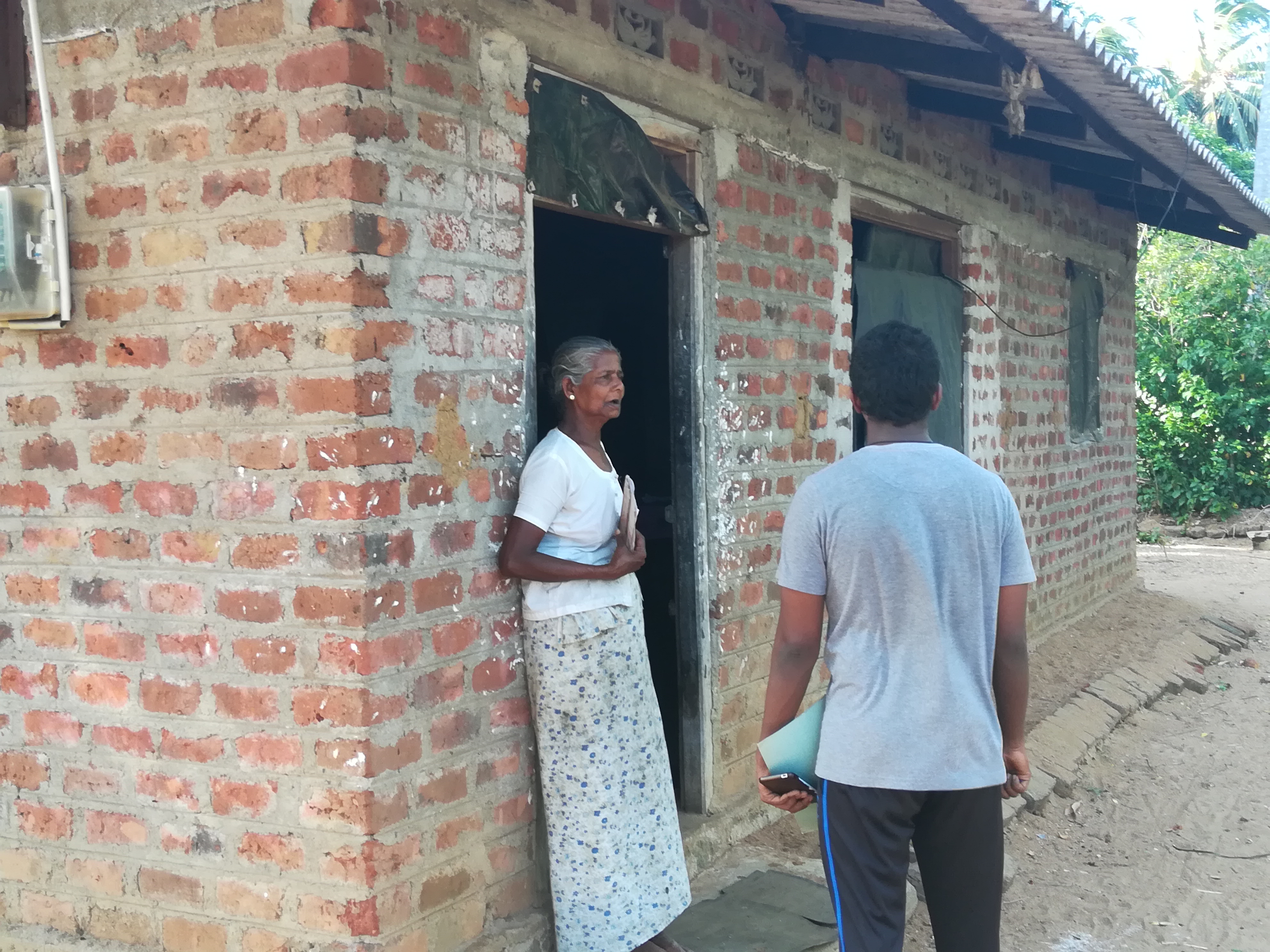
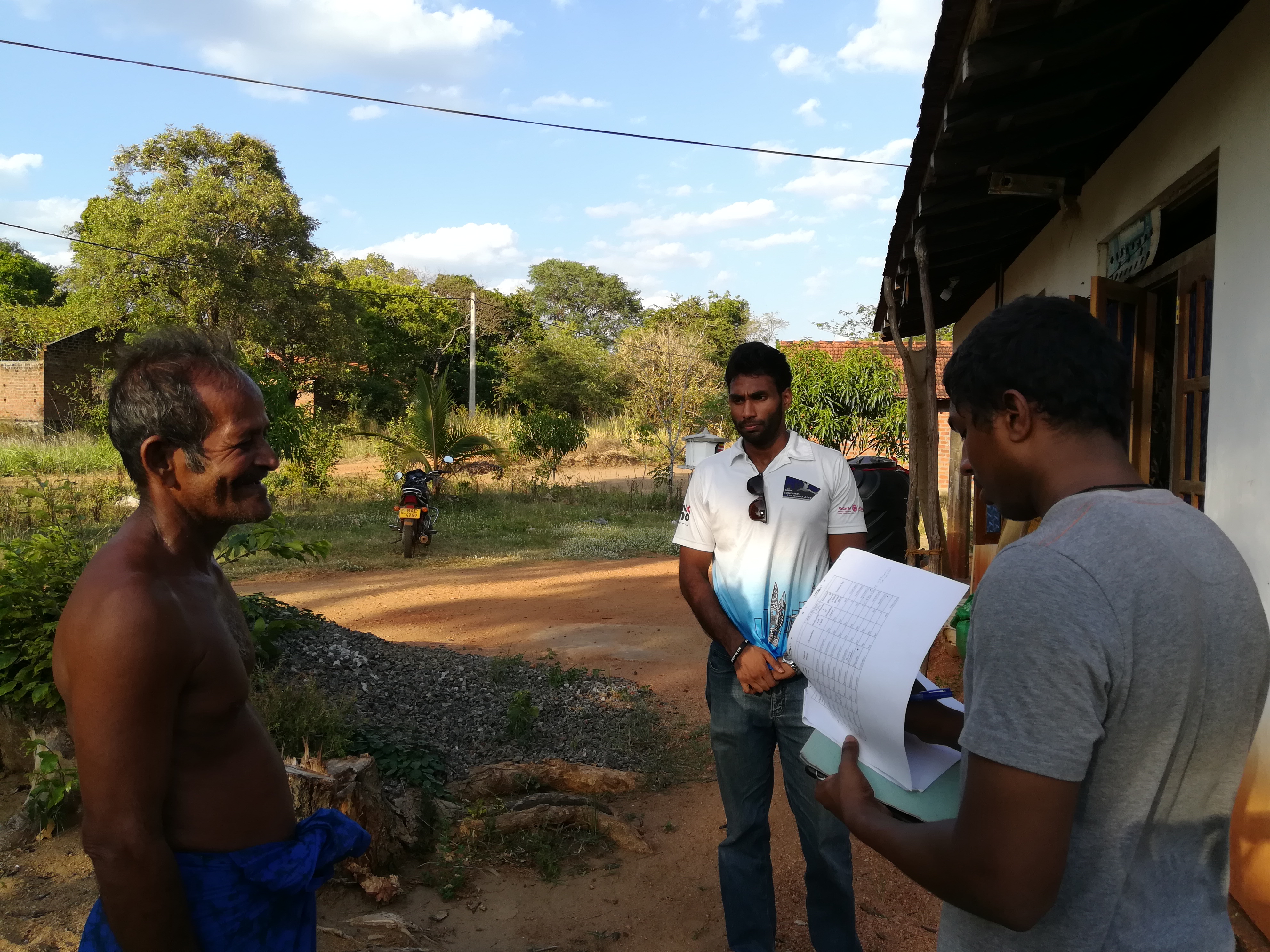
Shalu was asking questions and collecting data while the rest of us strolled around the house scanning the surrounding area. A humongous well at the back drew our attention. Upon closer inspection, we came to see that the entire well had dried down to a few cups worth of muddy water at the bottom.
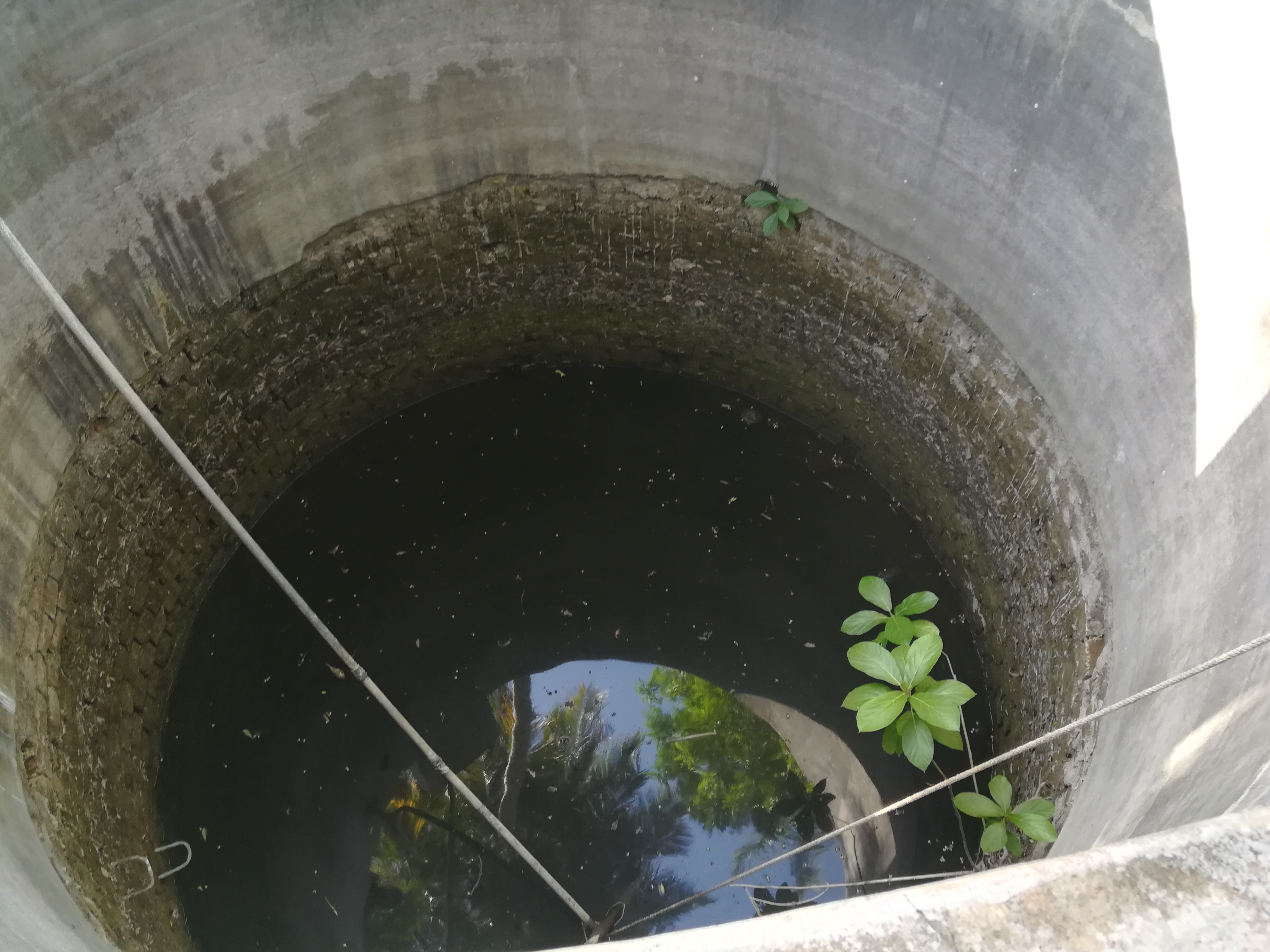
After bidding the couple farewell, we got back on the truck and started towards the next house on Shalutha’s list. The house we arrived at was still being constructed. Three young children were sitting on the veranda, with the thin shade of a wooden beam fixed above them protecting them from the scorching sun. A man whom we inferred to be the owner of the house came out to meet us as we approached the house. We explained to him the purpose of our visit, after which Shalutha began his usual routine of questions. We learned that he was from the army, a fact that he was reluctant to share with us because according to him, people tend to think that they do not need any help if they have any affiliations with the army. A woman appeared from the house and brought each of us a glass of water, as if it was the most valued thing they could give.
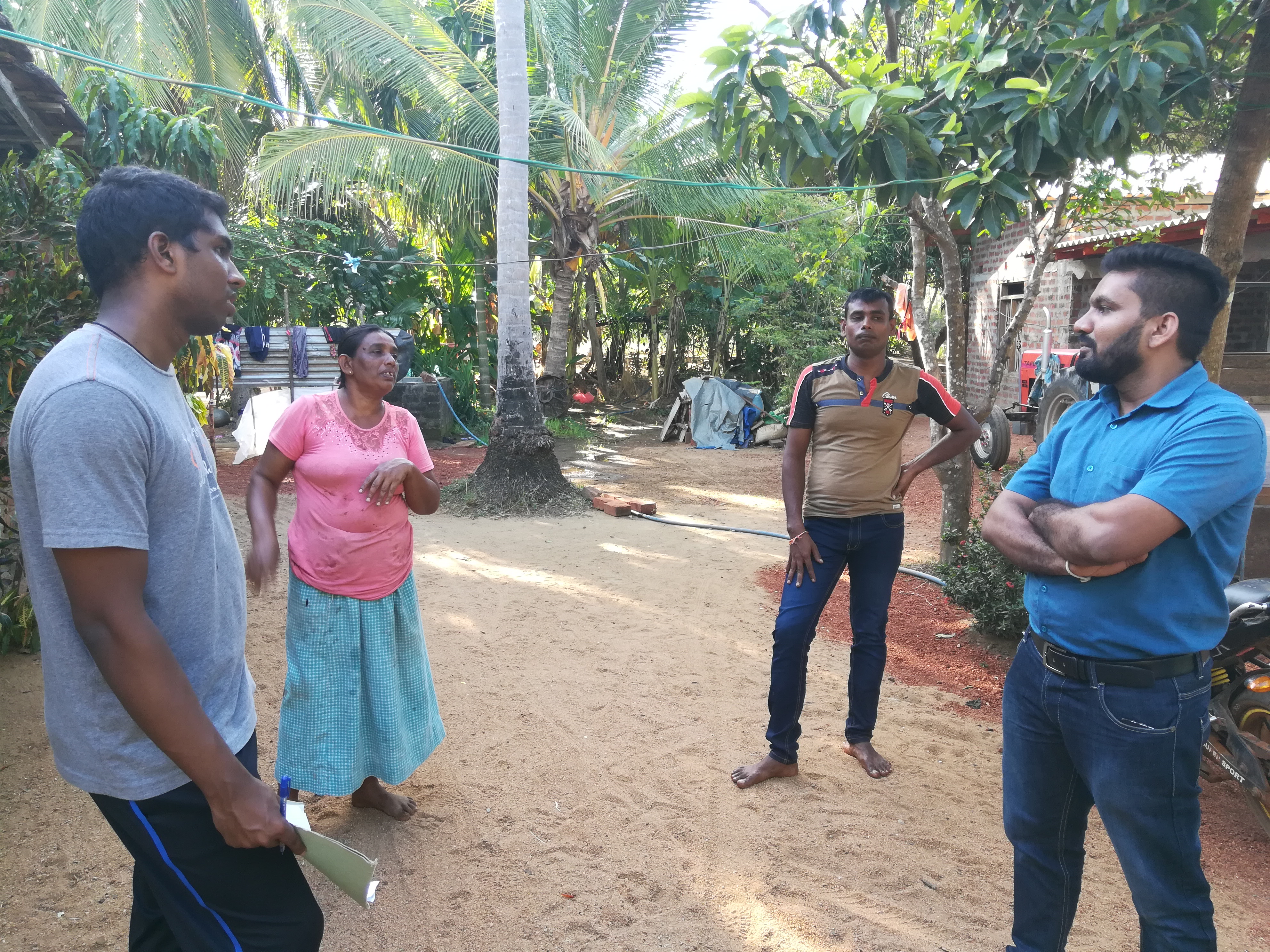
By 6 o’clock in the evening, we had finished all the houses on Shalu’s list and were heading back. On our way back, we came across a blackened field with clouds of black smoke and embers billowing upwards in an indolent fashion, and one majestic tree completely aglow in amber light. Our guide told us that often, one careless cigarette thrown away or a fire lit in the wrong place resulted in an entire area being lit up.
Bidding farewell to our guides from the Agriculture Department, we took a bus to Anuradhapura, because by then the last bus leaving to Vavuniya had already left. After getting a late dinner from Anuradhapura, we walked all the way to the railway station, where we waited for the Night Train leaving for Colombo. By 9.30pm the train had arrived, and we were already in our seats. Moments later, as the train sped along rail lines, I struggled to recall everything of importance that had happened to include in the report, but my mind kept wandering off. In the end, I gave up. I laid back, and let the calm hypnosis of the obscurity passing by my window put me to sleep.
Rtr. Randima Fernando
